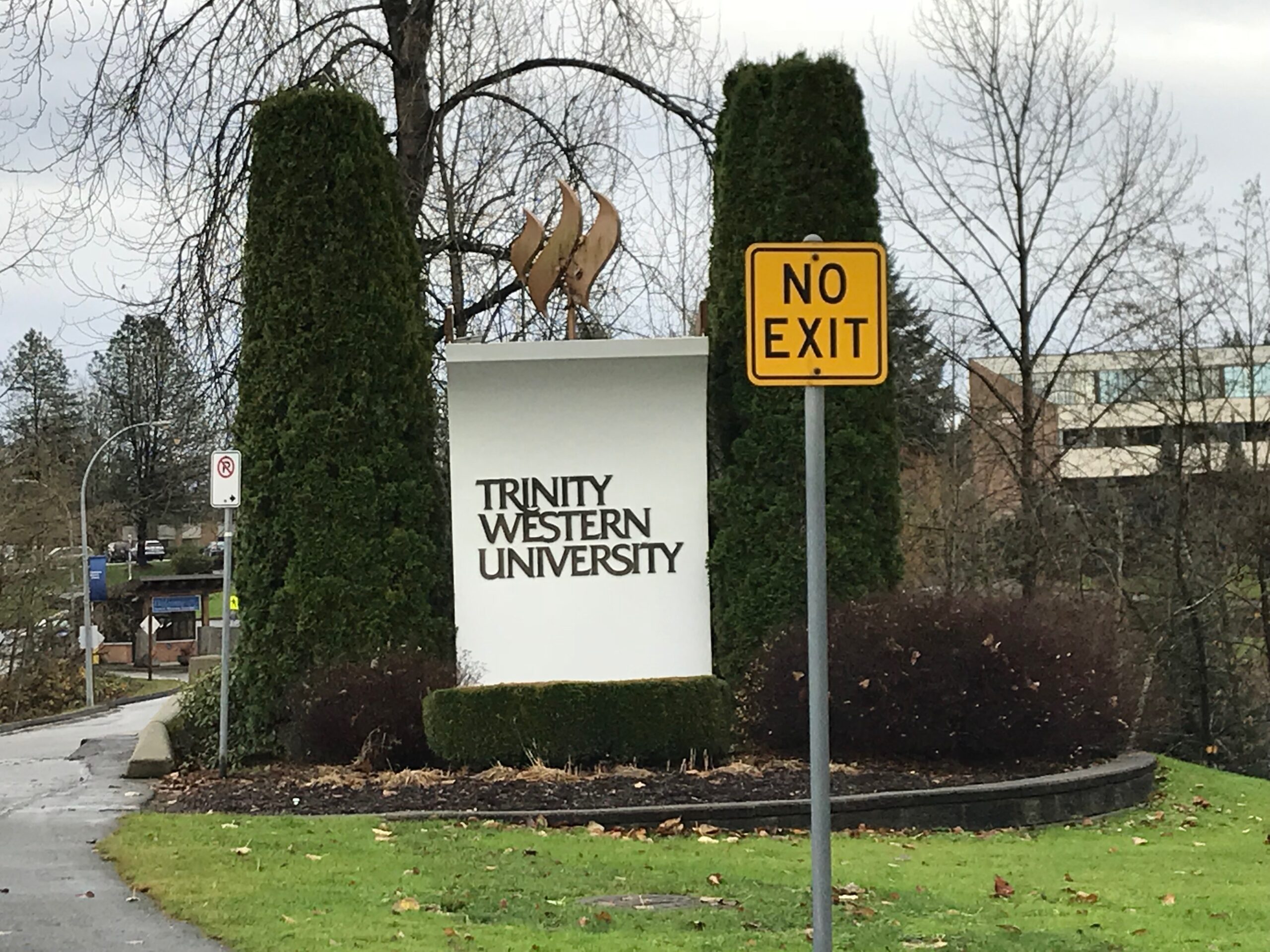Early into Trinity Western University’s oral arguments at the Supreme Court of Canada, Justice Richard Wagner interjected.
“Students who don’t share the same sexual orientation have two choices,” he said; either they can hide their orientation or they can not attend Trinity Western.
Kevin Boonstra, Trinity Western’s lawyer, agreed that non-evangelicals will tend not to enrol.
“In my book, that is called discrimination,” Wagner retorted.
That question of what counts as discrimination, and if some kinds of discrimination are justified, dominated much of the first day of oral arguments in Trinity Western’s lawsuit against the Law Society of Upper Canada on Nov 30, 2017.
Ontario’s law society had decided not to accredit future graduates of Trinity Western’s proposed law school because of the homophobic covenant the university forces students to sign. But Trinity Western believes that the law society doesn’t have the right to refuse its future students, and that it is infringing on their religious rights.
“If it was the only law school in Canada I think this would be a very different question,” Boonstra said. “But it’s not.”
This is the second time Canada’s largest Christian university has had to come to the Supreme Court of Canada to get approval for one its professional programs. The school won its first case in 2001 against the BC College of Teachers, despite the fact that the court found its covenant was discriminatory.
Boonstra argued that the university’s covenant is central to the religious expression of the Trinity Western community.
“The community covenant is the communal manifestation of the religious beliefs,” he said. “This is how they define the character of the religious community.”
Throughout his argument, the justices peppered Boonstra with questions about the discriminatory nature of that covenant.
In an animated exchange, Justice Michael Moldaver said that it appears that Trinity Western doesn’t believe that its covenant causes any harm whatsoever.
“LGBTQ people are saying you’re putting a barrier in front of us,” Moldaver said. “They’re saying that’s a real harm to them — it’s a harm to their dignity, it’s a harm to their very essence, it’s a harm to their existence.”
Guy Pratte, the lawyer for the Law Society of Upper Canada, said that while Trinity Western might not have to abide by the Canadian Charter of Rights, because it’s a private school, the law society does.
“They want the law society to lend its authority so as to bless an admissions policy whose effect is to impose religious beliefs on those who may not share them,” he said.
Pratte noted that it would be illegal for the law society to itself open a law school that discriminates against LGBT people, so it’s unable to accredit such a school for Trinity Western.
“How can it be that we are delegating or allowing a third-party provider like the proposed law school to do what we cannot do?” he asked.
But Boonstra countered that the law society can’t force a private university like Trinity Western to take on the legal obligations of a government entity.
While questions surrounding the community covenant and religious freedom were central in the oral arguments, the case is as likely to turn on the powers and obligations of law societies.
The hearing continues on Friday, Dec 1.

 Why you can trust Xtra
Why you can trust Xtra


